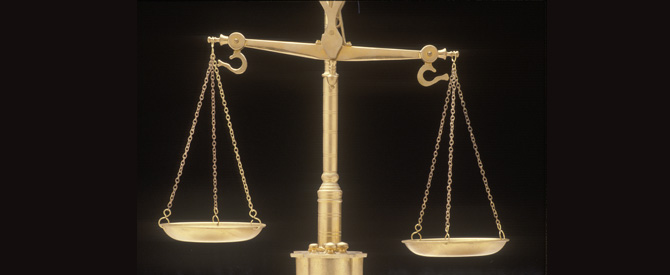Destiny is generally understood as life events predetermined by a higher power that are out of our control. It’s also commonly called fate.
Is this true? Are we the victims of a destiny that has been prearranged for us? Or are we victors, with the freedom to shape what happens in our lives?
Who or what determines our destiny?
Destiny and the Law of Karma
If God or a divine power determines what we get in our lives, on what basis does He/She/It decide what to dole out to each of us?
Surely, it must be precise and logical. After all, the world we live in is neither random nor chaotic. It’s predictable, intelligent and governed by incontrovertible natural laws.
For example, hot air always rises while cold air descends, gravity continually exerts its force on everything in the world, light never fails to travel in straight lines, a dense object sinks in water whereas a hollow one floats, and so on.
Seeing that we are a part and product of nature, some strict laws must control our lives too.
One of the laws governing the world that applies to our lives is the Law of Cause and Effect. Every effect must have a cause.
Here’s a simple example of the play of cause and effect in the world: Let’s say you’re looking through a closed window and see some trees swaying outside. You’ll infer that it must be a windy day because they cannot be swaying without a cause.
The same principle of cause and effect in our personal lives is called the Law of Karma. (“karma” means “action” in Sanskrit)
The law states that every action that we do creates a result. Actions are the cause, and the results are the effects.
The experiences of today are collectively called our destiny. The destiny of today is the effect of the actions that we have done in the past.
And, the actions that we perform today will bear results in the form of our destiny in the future.
Good actions create results that bring us happiness, and actions that cause hurt and sorrow to others bring us results in the form of sorrow.
And remember, since nothing is random or chaotic, the results will only come to the doer of the action.
So, we ourselves determine our destiny.
We can’t blame it on anyone or anything outside of us.
What is the role of the divine higher power or God? Its role is to determine the types of results that we get based on the various actions that we perform.
This is why in Sanskrit, one of the ways that God is described is Karma Phala Daataa. (karma = action + phala = results + daataa = giver)—the Giver of the results of actions.
Our destiny is not determined by a higher power but governed by it.
We do the actions, and the laws of nature put into place by the divine higher power determine the results that come.
The example of a Travelator
Being the creators of our own destiny, Does this mean that we are victims of our own self-created past? How much of freedom do we really have?
Although our past actions do impose some limitations on what we are going through now, we can improve our present experiences with self-effort.
For instance, we may not be able to fly, but we can move pretty far ahead by just lifting one foot after the other while staying on the ground.
While destiny influences our lives, our attitude and self-effort also play a big part in determining our happiness or sorrow.
To illustrate this idea, I’ll use the example of a travelator— you know, a moving walkway that we typically see at airports.
Let’s take the speed of the travelator to represent your destiny, and the speed at which you walk as your self-effort.
The speed of the travelator is 3 km/h. Here are four scenarios:
If you walk at a moderate pace of 3 km/h, your total speed would be 6 km/h. —You have used the favorable results of your destiny to your advantage.
If you walk faster, at say 6 km/h, your total speed forward would be 9 km/h. —You have leveraged the circumstances of your destiny to your great advantage.
If you turn around and walk the other way at 3 km/h, you would stay at the same spot you are on. —Your destiny is not taking you where you want to go. You mitigate its effects by putting in effort in the opposite direction so as to maintain your status quo.
If you walk at 6 km/h in the opposite direction, your total speed would be reduced by the opposing speed of the travelator and make your net speed 3 km/h (6 km/h minus 3 km/h). —Your destiny is not taking you where you want to go. You take great pains to weaken its effects and are able to move your life in the direction that you want to a significant degree.
Depending on how strong your destiny is (the speed of the travelator), you can determine the progress and direction of your life by moderating your self-effort.
Your self-effort today (or lack of it) will influence your current experience as well as shape your future destiny. (Read how a blind man has become an accomplished painter and reshaped his destiny. Click: How to accept and celebrate what is
Victor and not Victim
If there’s anything that you don’t want or like in your life, and you seem to be the only one around you who is experiencing this, stop feeling like a victim. Take responsibility for your past—even though you have no clue of what you did to deserve this.
Know that the results can only come to the doer of the action, and not someone else. (Nature’s laws make total sense and are incontrovertible)
Although your present effort is limited by your past karma, by putting in the right amount of effort for the right amount of time in the direction of your goals you can achieve what you want and even more.
You can be the victor of your destiny!
Like this post? Sign up for the free fortnightly Spiritual Solutions Newsletter and receive the latest articles, news and updates in your email inbox!













